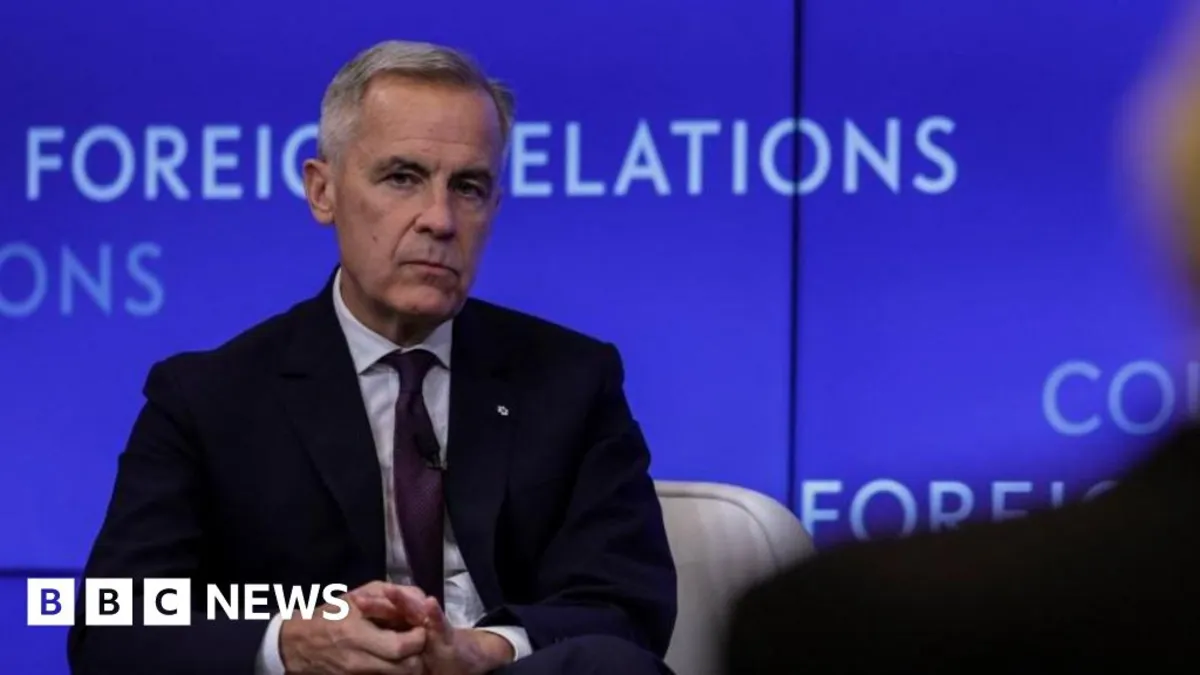
As President Donald Trump raises the fees for the popular H-1B visa program in the United States, legal experts and business analysts are urging Canada to capitalize on this significant shift in immigration policy. However, while Canada may seem like an attractive alternative, potential immigrants should be aware that the Canadian immigration system presents its own unique challenges.
In a recent speech at the Council of Foreign Relations in New York City, Canadian Prime Minister Mark Carney acknowledged the growing concern over the H-1B visa changes. He highlighted Canada's talented workforce in research and artificial intelligence (AI), recognizing that many skilled individuals are choosing to move to the US for better opportunities. "I understand you're changing your visa policy," Carney stated, playfully suggesting that Canada might be able to retain some of these talented individuals.
Trump's announcement to impose a staggering $100,000 fee for new H-1B applications has left many tech companies in shock. This program has been a crucial pathway for foreign workers, including Canadians, who constituted about 1% of total H-1B applicants in 2019. While the White House assures that current H-1B holders will remain unaffected, the changes are anticipated to limit opportunities for highly educated foreigners, particularly recent international graduates from US universities, who were hoping to stay and work in the US long term.
With the tightening of the H-1B visa, many experts, including Canada-based immigration lawyer Evan Green, see this as a prime opportunity for the Canadian government to attract skilled workers. Green emphasizes that Canada should act quickly to appeal to the hundreds of thousands of highly skilled H-1B professionals now seeking new homes. A memo from Build Canada, a non-profit organization aimed at enhancing Canada's productivity, echoed this sentiment, arguing that Canada is a natural destination due to its world-class research institutions, similar time zones, proximity to the US, and high quality of life.
A 2020 study conducted for the National Bureau of Economic Research found that when faced with restrictions on skilled worker immigration, US multinational companies often sought to retain talent in countries like Canada, India, and China. This trend has historical precedence, as evidenced by the 2004 H-1B restrictions that resulted in a significant decrease in visa availability, prompting many companies to hire skilled immigrants in Canada instead.
In 2023, the Canadian government introduced a program specifically for US-based H-1B holders, allowing them to apply for a three-year work permit in Canada. This initiative saw an overwhelming response, with applications closing within 24 hours after 10,000 individuals signed up. While the exact number of successful relocations remains unclear, Calgary-based lawyer Mark Holthe reports that some of his clients have moved to Canada after their H-1B visas were not renewed, highlighting the urgent need for options.
However, Holthe also acknowledges that many newcomers face obstacles in securing permanent residency, leaving their long-term status in Canada uncertain. Economist Mikal Skuterud cautions that while there is potential for Canada to attract talent, significant improvements to the immigration system are necessary. He notes that Canada has recently scaled back immigration and is embroiled in political debates over its temporary foreign worker program, which primarily targets lower-skilled workers.
Despite these challenges, Skuterud maintains that Canada should not shy away from pursuing the opportunity presented by the H-1B visa changes. Research indicates that the H-1B program has contributed to notable economic growth in the US, particularly in the realms of research and innovation in high-tech industries. An IRCC spokesperson confirmed that there are various pathways for employers to bring skilled workers into Canada, including the Express Entry program and the Global Skills Strategy program, which allows for expedited processing of work permits for highly skilled foreigners.
As Canada navigates this complex landscape, it is crucial for the government to identify and implement new solutions that will attract the world's brightest talent, ensuring that the nation remains competitive on the global stage.